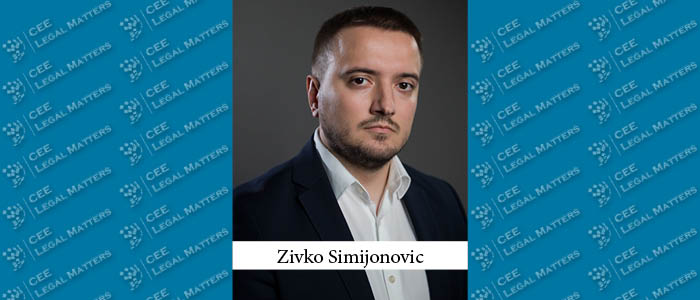For those familiar with the situation in the world of football in Europe, the end of 2023 was very interesting bearing in mind that the European Court of Justice (ECJ) made two important decisions concerning football organizations FIFA and UEFA.
While the case of establishment of the European Super League by the 12 largest European football clubs outside the jurisdiction of UEFA and FIFA (Case C-333/21), was extremely covered by the media, almost unnoticed was the case submitted at the initiative of a football player and the Royal Antwerp Football Club, on the minimum number of domestic players in clubs (Case C-680/21). While the two cases are unrelated, they both involve a conflict with FIFA and UEFA rules, which serve as umbrella football organizations at the global and European levels, respectively.
The European Union Competition rules, referred by the footballer and the Belgian football club on one side and the 12 largest European football clubs on the other, cross equate to the rules adopted on the functioning of football associations and competitions within FIFA and UEFA, and in both cases, the question arose as to whether these sports rules can survive to the full estimation without prejudice to European competition rules and also about competition in the field of sports, i.e. sports organizations and sports competitions.
"Domestic Players" Rule – Royal Antwerp Football Club
UEFA rules, as well as the rules of the Belgian Football Federation – URBSFA (adopted according to the same UEFA model) provide for a minimum number of "domestic players" in football clubs. The "domestic players" rule adopted in 2005 was fully implemented in the 2007/2008 season. This right stipulates that professional football clubs participating in international football competitions organised by UEFA must have at least 8 "domestic players" on the list of up to 25 players. The term "home-grown players" does not refer in any case to nationality (which is prohibited) but to players who have trained at one club (or another club of the same national football federation) for at least 3 years between the ages of 15 and 21. Out of a total of 8 domestic players, 4 of them must be domestic players of the club on whose roster they are. Following UEFA rules, the Belgian Football Federation has adopted similar rules.
The demand of the footballer and the football club was based on the fact that the rules of UEFA and the URBSFA (Belgian Football Federation) on domestic players violate the rules on the free movement of workers guaranteed by Article 45 of the Treaty on the Functioning of the European Union (TFEU) and the competition rules provided for in Article 101 TFEU. The Local Court in Brussels has referred to the ECJ on these two issues, namely:
- Can UEFA and URBSFA rules on domestic players be categorized as restrictive agreements within the meaning of Article 101 TFEU?
- Are these rules consistent with the freedom of movement of workers guaranteed by Article 45 TFEU, and can these rules be justified, appropriate, necessary, and proportionate?
With regard to competition rules, the ECJ has taken the stance that the rules on domestic players may be aimed at limiting or distorting competition with regard to the recruitment of talented players between clubs. However, the ECJ leaves it up to national courts to determine whether these rules restrict competition because of the objective or the potential effects. If this proves to be the case, UEFA and URBSFA will have the opportunity to demonstrate that these rules can be justified under the conditions relied on by the ECJ in its ruling.
With regard to the free movement of workers, the court considers that these rules can also lead to discrimination on the basis of nationality, according to players coming from other countries. In this regard, UEFA and URBSFA reserve the right to demonstrate that these rules nevertheless encourage employment and training and are proportionate to this purpose.
This case is important, especially considering the earlier case in 1995 (Bosman, C-415/93) which launched the story of foreign players. The famous "Bosman rule" which prohibited restrictions on foreign players, had a direct impact on the aforementioned Article 45 of the TFEU.
The "SUPER LEAGUE" Project
European Superleague Company SL (ESLC), a company founded in Spain at the initiative of a group of professional clubs: in Spain (Club Atlético de Madrid, Fútbol Club Barcelona, and Real Madrid Club de Fútbol), in Italy (Associazione Calcio Milan, Football Club Internazionale Milano and Juventus Football Club) and in the United Kingdom (Arsenal Football Club, Chelsea Football Club, Liverpool Football Club, Manchester City Football Club, Manchester United Football Club and Tottenham Hotspur Football Club). The goal of the gathering of these clubs is a project known as the "Super League". The plan was for this company to deal with the management of the Super League, and exploit media rights and other commercial content. The funds for the start of such a large project were offered primarily by JP Morgan AG in the form of financial support in the form of a loan with a total value of about EUR 4 billion.
As conditions for the project to come to life, it was necessary either for FIFA/UEFA to confirm the compliance of this project with its rules or to provide legal protection to clubs and players that the project would not jeopardize their participation in national and international competitions. This meant only one thing – FIFA and UEFA had to be familiar with this project.
As FIFA and UEFA did not look kindly on the project, which they see as competing, they issued a statement that they do not recognise the competition and that any football club and football player participating will face sanctions.
This attitude has contributed to the fact that in the previous period a good part of the founding clubs of the Super League announced that they no longer stand by their support for the formation of such a league.
The local court, acting on ESLC's lawsuit, imposed interim measures prohibiting FIFA and UEFA from interfering with or acting in connection with this project.
The questions referred to ECJ by the local court are to discuss:
- Whether sports activities are excluded from the TFEU provision on freedom of movement; and
- Is this behavior of FIFA and UEFA contrary to competition rules?
As regards these two questions, the court found:
- That the organization of international club competitions and the exercise of media rights are – economic activities, and that the rules of competition and freedom of movement must be respected, although sports activities have specific characteristics;
- That FIFA and UEFA are abusing a dominant position because the powers of FIFA and UEFA are not subject to any criteria, although the adoption of transparent, objective, anti-discriminatory, and proportionate criteria for market entry is necessary by those in a dominant position;
- That FIFA and UEFA rules regarding the exercise of media rights can be harmful to market participants, but that it is left to the local court to determine whether there are benefits to market participants.
In any case, this court’s decision does not mean recognition of the Super League project but is in any case a harmful blow to FIFA and UEFA.
However, FIFA and UEFA, aware of the existence of this project, embarked on the consideration of their version of the Super League, so further development regarding the future of European football remains to be seen.
The new practice undermines the traditional influence of FIFA and UEFA on the establishment of rules in the functioning of football competitions, therefore openly raising the question of whether FIFA and UEFA are willing to change their rules or whether someone else will do so in a different format.
By Zivko Simijonovic, Senior Associate, JPM & Partners















